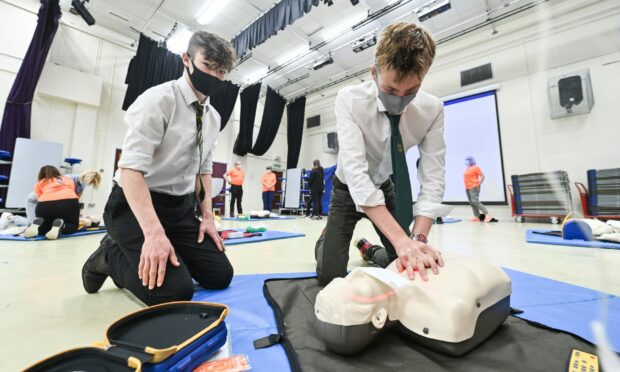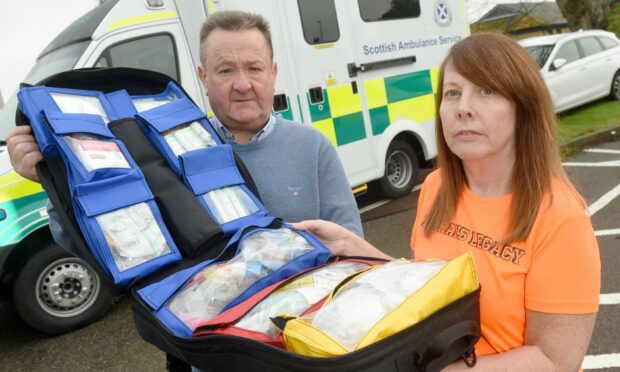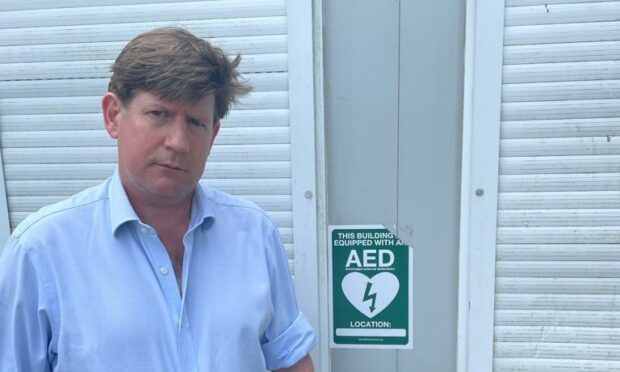The SNP Government is being urged to follow plans in England to give every state-funded school a defibrillator, after concerns about patchy availability in Aberdeenshire, Moray and Highland.
The machines allow users to give an electric shock to the heart of someone who is in cardiac arrest.
They can save lives while paramedics rush to reach people in distress.
Defibrillators are installed in every Aberdeen school in memory of six-year-old Kacey Seivwright who died at an after-school club last year.
Her family decided to seal her legacy by raising more than £50,000 to ensure all 60 primary and secondary schools in the city have them.
But there are currently no plans in Aberdeenshire to install devices in every school.
Some schools – including Inverurie, Turriff and Mackie academies – do have them but they are funded by various means and maintained by different organisations.
Keiran’s Legacy
In Moray, some schools have defibrillators, usually where there has been fundraising by the community.
Training is provided to all secondary school pupils, with kit provided by the British Heart Foundation and Keiran’s Legacy.
Sandra and Gordon McKandie founded the charity in honour of their late 16-year-old son, Keiran.
He was cycling from his family’s home near Elgin when he was hit by a car in March 2016, suffering fatal injuries.
The nearest ambulance was 38 miles away, taking 30 minutes to reach him.
The first emergency service on the scene was a police fast response vehicle, which had no emergency life-saving equipment.
A total of 26 schools across Highland have access to the appliances either internally or externally.
Most schools in Orkney have defibrillators in place already through donations.
Defibs boost survival chances
Around 270 children die every year across the UK due to sudden cardiac arrest.
But with correct defibrillation, the chances of survival can be as high as 75%.
Alexander Burnett, MSP for Aberdeenshire West, has written to Public Health Minister Maree Todd asking her to follow the example south of the border.
She told him decisions are a “matter for local authorities, in light of local circumstances and priorities”.
Ms Todd added: “Work is ongoing to build the evidence base on the location of out-of-hospital cardiac arrest in Scotland, and the existing locations of defibrillators.
“This will support the strategic placement of defibrillators across Scotland.”
Mr Burnett said defibrillators should be a priority.
“Access to funding must not stand in the way of every school having on-site access to a life-saving defibrillator but it’s clear this is the case in areas across the country such as the north-east,” he said.
“All schools should have defibrillators which would help save lives when incidents occur while also boosting numbers in our communities.
“Recent tragic incidents in our schools should act as a reminder to the Scottish Government that defibrillators considerably enhance the chances of survival and should be treated no differently to other life-saving appliances such as fire extinguishers.”



